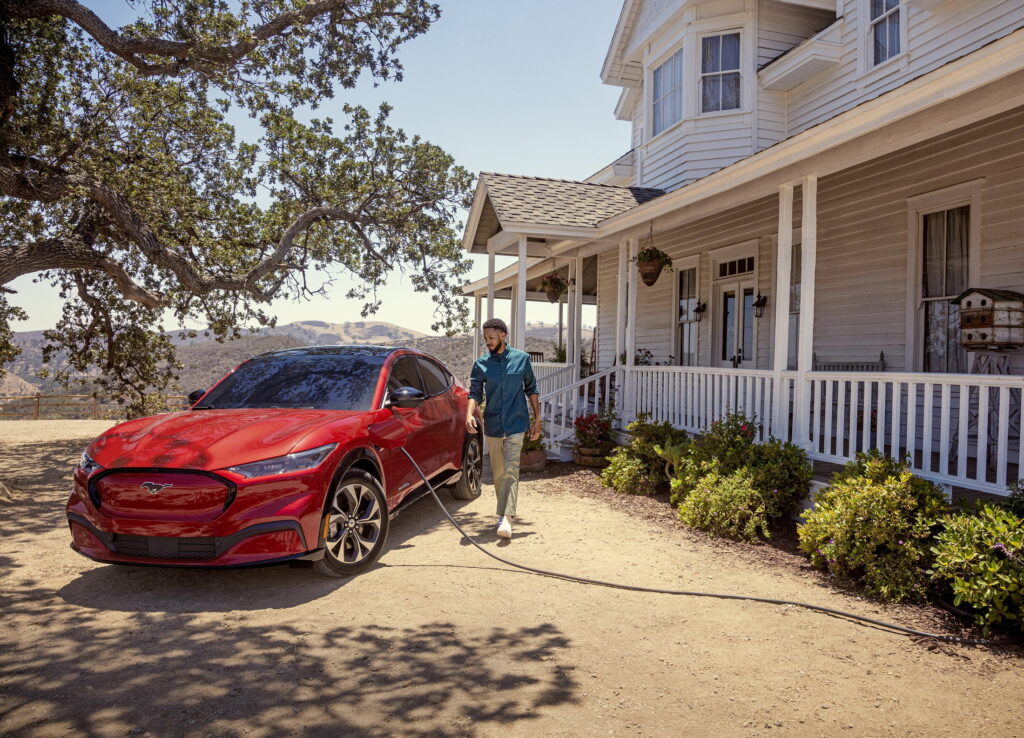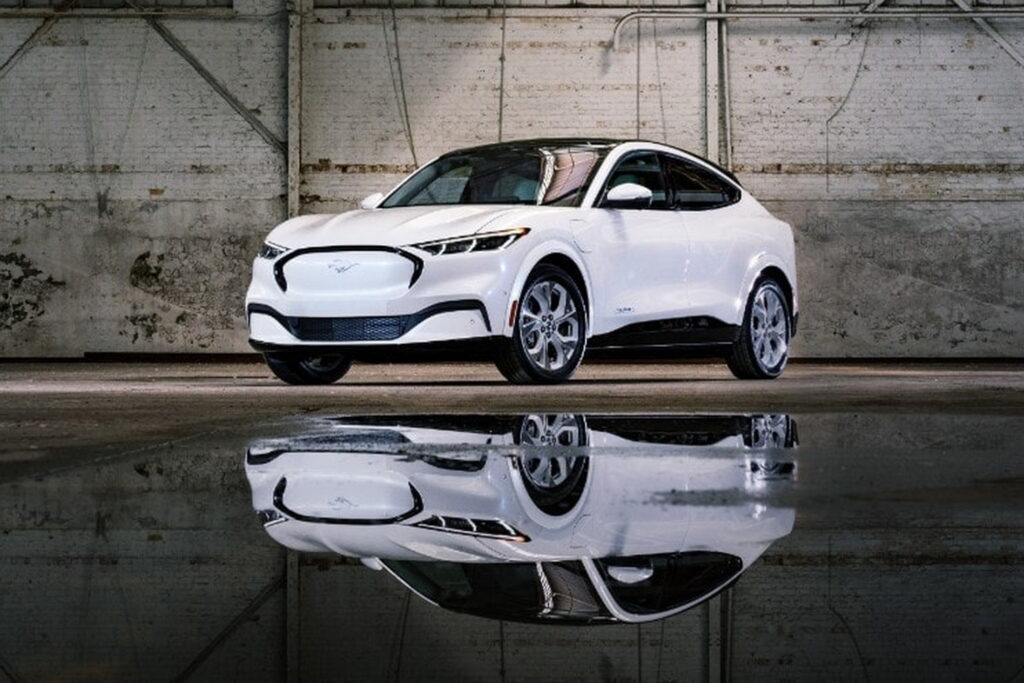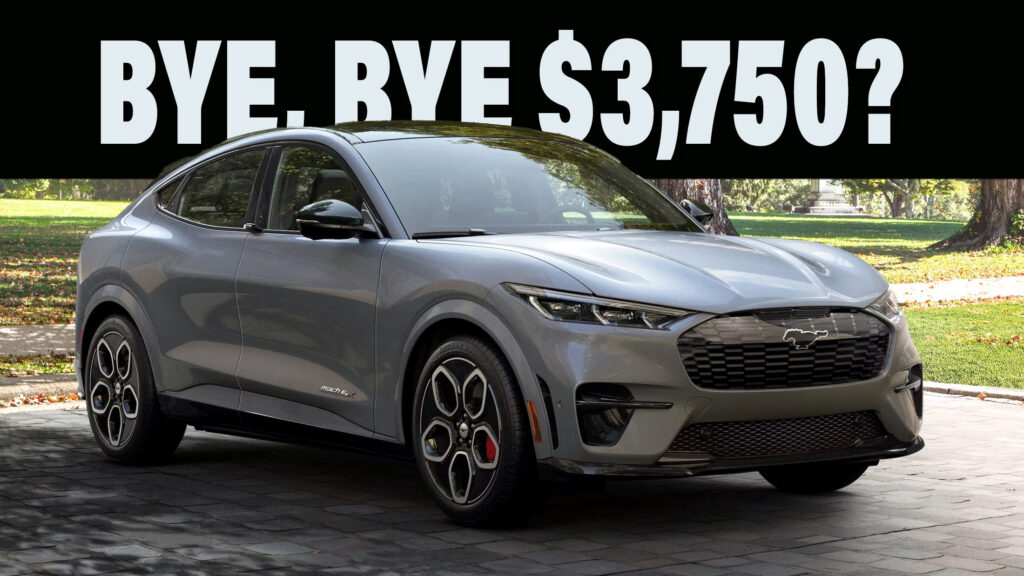Ford thinks the Mustang Mach-E will stop qualifying for any federal tax incentives starting on January 1, 2024. Therefore, buyers who want one may want to consider getting it before the new year.
At least that’s Ford’s take, since the all-electric crossover is still eligible for $3,750 in refunds under the Inflation Reduction Act (IRA). However, new sourcing rules that are set to kick in at the start of next year are likely to change that.
Ford confirmed the news to Carscoops, with a spokesperson stating, “It’s correct that we think it’s unlikely the current model of the Mustang Mach-E will qualify for federal incentives.” Unfortunately, the company is still evaluating the implications of recently proposed rules by the U.S. Department of the Treasury from last week, and as a result, they don’t have any additional information to share.
Previously, the company had communicated to dealers, stating that, “We are awaiting finalized requirements from the government,” in a message seen by Cars Direct. “Based on current information, it is unlikely that any Mustang Mach-Es will qualify for the Federal Tax Credit beginning on 1/1/24.”
Read: Ford’s New LFP Batteries Will Only Be Fitted To Standard Range EVs

Ever the optimist, Ford pointed out the silver lining to its dealers, which is that this could be “an excellent motivator to purchase before the end of the year.” It encouraged them to reach out to customers and close sales quickly.
Vehicles that are assembled in North America, and whose batteries are made up of materials that are primarily sourced from the U.S.A. and its allies, are eligible for up to $7,500 in tax credits under the IRA. However, incoming modifications to the rule mean that EVs whose batteries are made using materials from “foreign entities of concern” are not eligible for any credits, which appears to be what Ford is concerned about here.
China is one of those concerning entities, and Ford announced earlier this year that certain vehicles in its lineup will be powered by lithium iron phosphate batteries. The cheaper batteries use technology licensed from China’s CATL.
Although Ford plans to assemble the batteries in Michigan, the plant that builds them won’t be up and running until 2026. However, base model versions of the Mustang Mach-E have started using LFP batteries, and reports suggest that they come straight from CATL.
It is not yet clear if the Ford F-150 Lightning will be eligible for tax incentives, but it is also expected to start using LFP batteries. Those packs aren’t supposed to start going into the pickup truck until later in 2024, though. It is not clear if the Mustang Mach-E will become eligible for tax incentives once its batteries are produced in Michigan.





